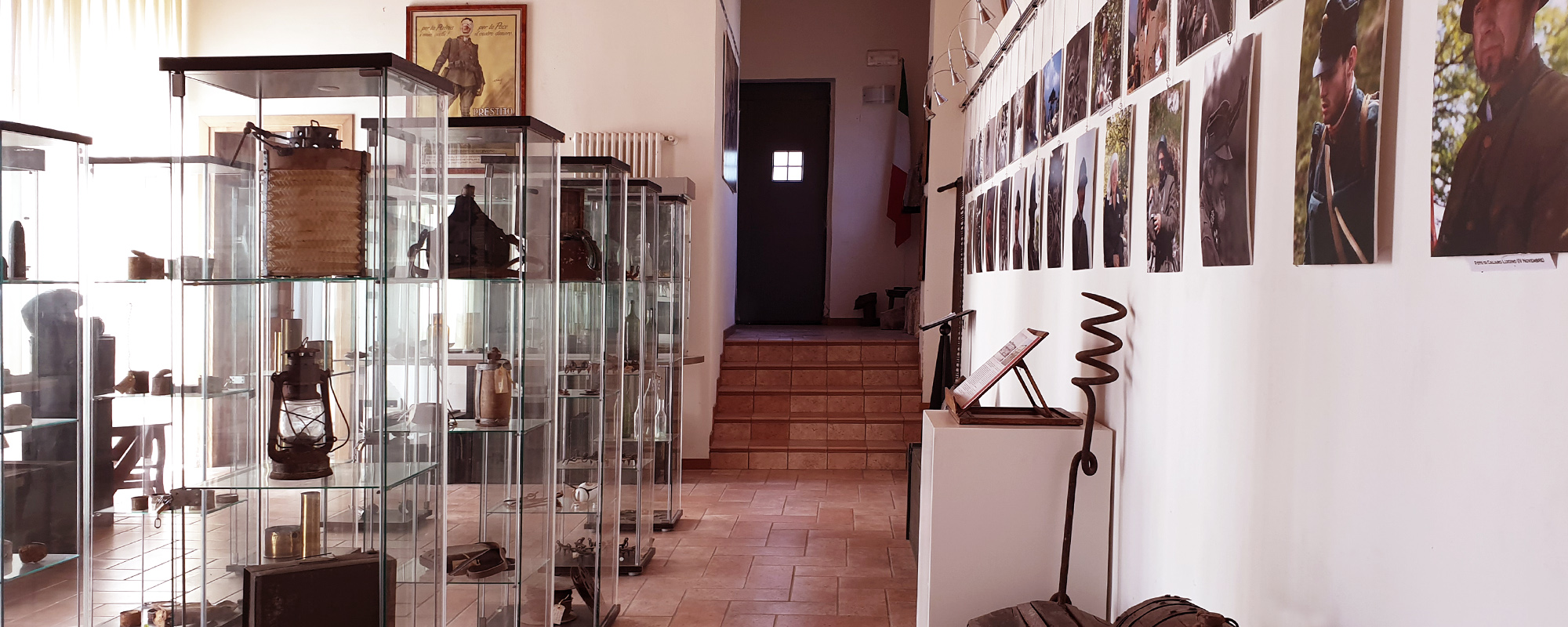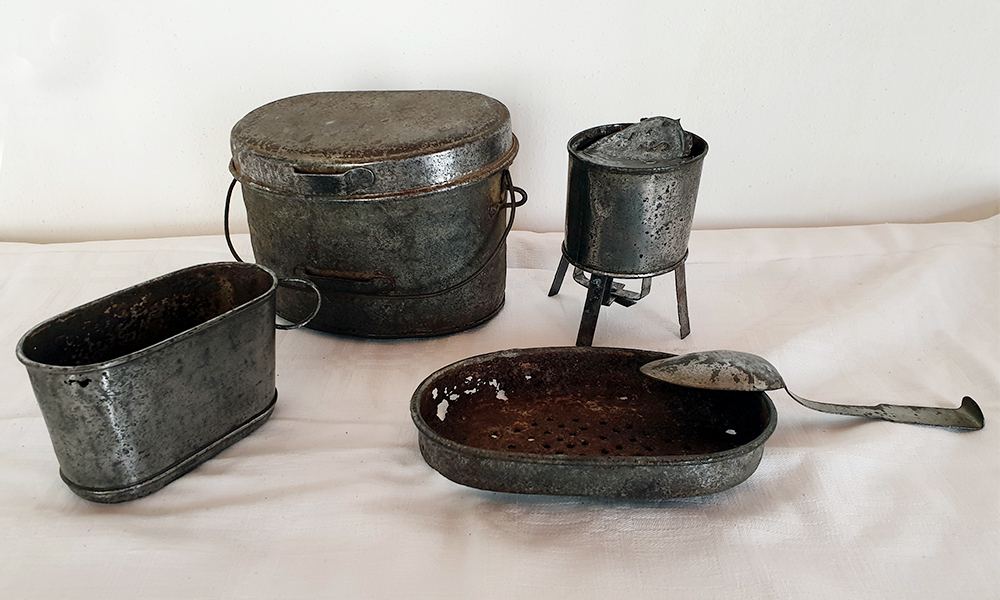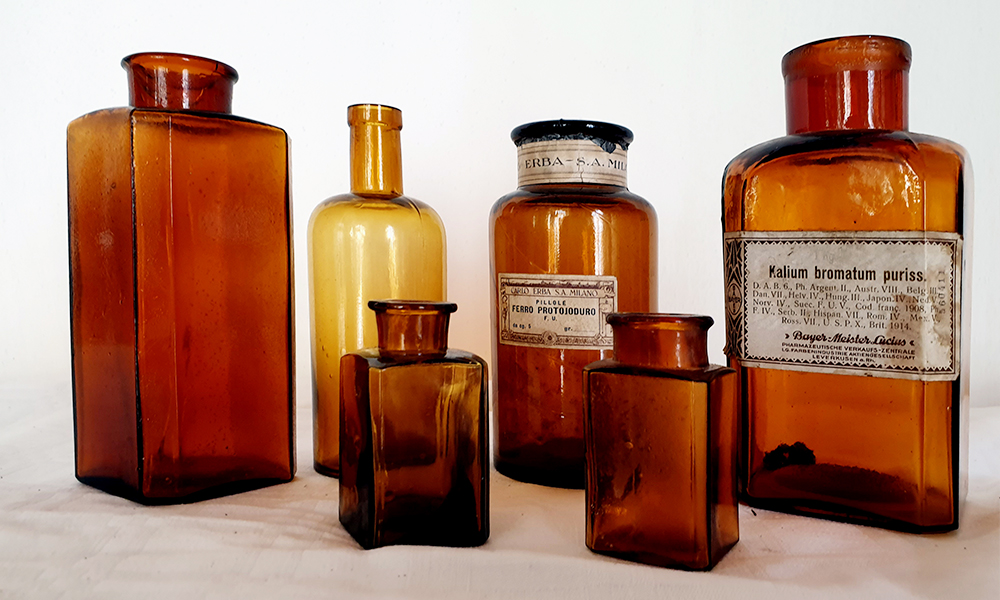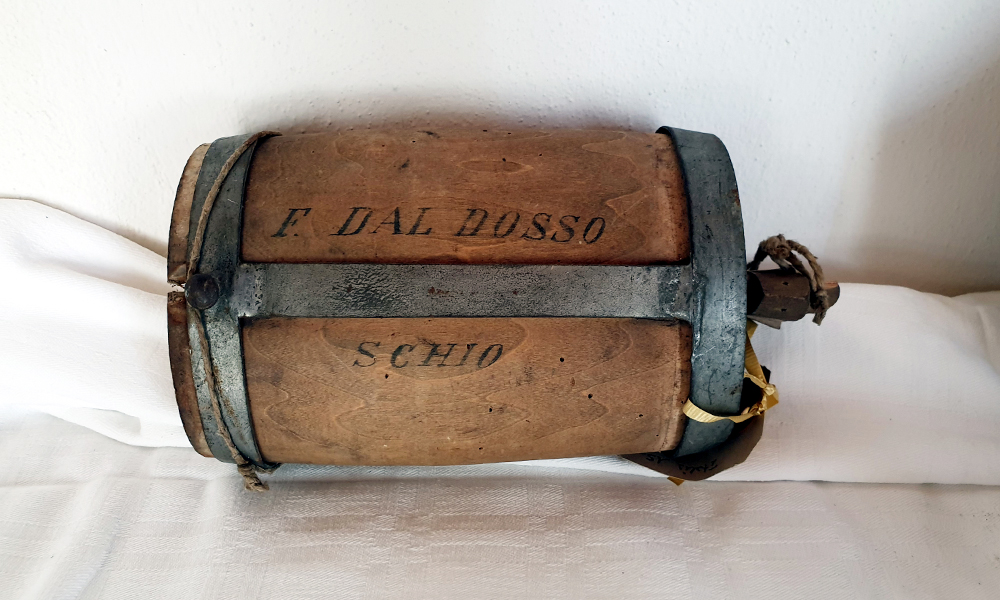Tito Caporali Exhibition Hall
Schio



The IV Novembre Association was established around 1987 by a group of enthusiasts, connoisseurs and researchers of historical memories.
From the outset, however, the main focus was on the ‘home mountain’: Monte Novegno.
On this mountain, which dominates Schio and the Leogra Valley, there was not much fighting, but on 12 and 13 June 1916, decisive events took place for the outcome of the great imperial offensive, better known as the ‘Strafexpedition’.
The Austro-Hungarian offensive, which began on 15 May, came to an end on 2 July when it was finally halted at Pasubio. But if it had not been for the heroism of the Italian soldiers on Novegno (the Letzer Berg – the last mountain – considered by the adversaries of the time to be the weakest and easiest point to overcome), the discourse would have taken a different turn.
In historiography, however, a place of pre-eminence is reserved for Pasubio, giving Novegno only scant consideration, almost undeserved oblivion.
The Association has chosen Mount Novegno, and Fort Rivon in particular, as its symbolic seat and often re-proposes, with the presence of reenactors in period uniforms, situations and moments of trench life that render well the idea of the tragedy of the Great War without celebrations and rhetoric.
All the more so since today the artefacts, trenches and tunnels have been recovered and made visitable under Law 78 and are kept visitable by members with annual cleaning operations.
The summit of the mountain is currently the object of visits, guided and unguided, by enthusiasts and all those who, by visiting these places, contribute to a substantial flow of cultural tourism. Visitors, that is, who have chosen research and knowledge of the places that were the theatre of the First World War events as their main objectives.
But these are not the only considerations to be made. The natural environment and its preservation, the views from the summits, ranging from the Venetian lagoons to the furthest Apennines, the richness and variety of flora and fauna, are also elements that characterise the dissemination activity. In fact, numerous activities are promoted, such as field research, accompanying groups of enthusiasts, scholars and schools, editing and publishing historical-photographic volumes, and organising exhibitions, shows, conventions, concerts and conferences.
The Association’s headquarters are in the former Cella barracks in Via Rovereto 21/a in Schio; acquired by the municipality after renovation work, it was assigned to the association.
Here, in the old stables, an exhibition hall has been set up named after ‘Tito Caporali’, Captain of the Alpine troops, who was decorated several times and fell on Mount Novegno in June ’16.
The association prepares an average of four exhibitions throughout the year, each dealing with specific topics. Our exhibition section, which has undergone considerable development and transformation over the past few years, also thanks to all the collector members who make their exhibits available, aims not only and not so much as a place for the preservation and exhibition of objects from the past, but increasingly as a promotion of studies and research and as a cultural element for social, didactic and popular use, both towards insiders and towards students or simple visitors.
Saturday: from 15:30 to 18:00
Except for the months of August and December.
Also by appointment
Access for the differently-abled is possible.